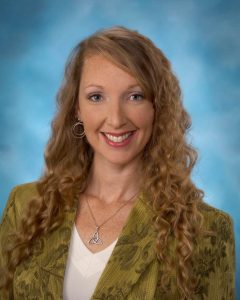By Darcie Larimore-Arenas, PA
The ACUE course has been a game-changer for me. I started as faculty at Touro University four years ago, having come from a clinical background in family practice and a teaching background at the K-8 level. As a graduate of the program where I am now teaching, I assumed (incorrectly) that teaching the next generation of PA/MPH students would feel instinctive and that I could fall into a rhythm guided by my personal history and experience. Unfortunately, this was absolutely not the case. I struggled to find my way in a variety of important areas, including curriculum development, syllabus creation, testing, and effective use of class time. I have had excellent colleague mentorship but felt that I was piecing together the pathway to better teaching. Enter ACUE.
Last year, the ACUE course rolled out to 20 staff and faculty at Touro University Nevada and nine more at Touro University California, expanding to 20 participants at both campuses this year. Dr. Jim O’Connor, Touro’s Founding Dean Emeritus of the College of Education and Health Sciences, has observed that participants seem to relish the opportunity to improve their teaching skills.
I admit that I was reticent to take on additional work and responsibilities with this course given that I am full-time principal faculty and practice clinically, as well. But the hybrid design of the course, which includes online and face-to-face meetings, gave me the flexibility I needed. I have been able to employ practical and meaningful changes to my courses as a result of what I am learning.
Since I have begun employing ACUE practices in the classroom for improved delivery of material, students have responded enthusiastically and with improved participation. A sampling of my newly instituted techniques includes mini-lessons, lecture outlines presented at the beginning of class, small group and pair-and-share activities to begin class or break up the lecture, and student-led summaries of the lecture material. In addition, ACUE has greatly helped me to better understand how to make learning outcomes student-centered and how to align the outcomes with objectives and assessments. I am developing improved testing methods and creating transparency in the process so that students feel empowered for their own learning.
And, as Dr. O’Connor has observed, the faculty’s eagerness to put themselves back in the classroom as students has really helped their students optimize success. He said, “They [faculty] are cross-pollinating their ideas. They’re trying new things and finding out those things are working.”
While there was value in my past experience as both a teacher and student, there was still so much more for me to learn about effective teaching practices. After learning so much about creative ways to better structure my classes, I have noticed a difference in how my students have responded. I feel better organized, on time, and more energetic about the approach to delivering materials. We all seem to be truly enjoying the experience of learning and teaching more. I am eager to learn new strategies and I am excited for what’s to come in the classroom for my students and myself!
Darcie Larimore-Arenas, PA is an assistant professor for the Dual Master Degree Program for Physician Assistant and Public Health Program, Touro University California.

